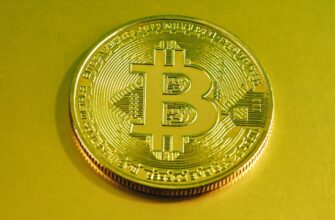What is the Bitcoin Halving?
The Bitcoin halving (or “halvening”) is a pre-programmed event in Bitcoin’s code that slashes the reward for mining new blocks by 50%. Occurring every 210,000 blocks – roughly every four years – this deflationary mechanism controls Bitcoin’s supply, capping it at 21 million coins. The next Bitcoin countdown halving marks a pivotal moment where scarcity intensifies, historically triggering major market shifts.
The Bitcoin Countdown Halving: Why the Excitement?
As the Bitcoin countdown halving approaches, the crypto community buzzes with anticipation. Here’s why:
- Supply Shock: Fewer new coins enter circulation daily, amplifying scarcity.
- Historical Precedent: Past halvings (2012, 2016, 2020) preceded massive bull runs.
- Economic Implications: Miners’ operational costs rise, potentially squeezing inefficient players.
- Market Psychology: FOMO (Fear of Missing Out) drives investor interest pre-event.
How Does the Bitcoin Halving Work?
Bitcoin mining involves solving complex puzzles to validate transactions. Miners receive two rewards:
- Block rewards (newly minted Bitcoin)
- Transaction fees
During a halving, the block reward is cut in half. For example:
- 2012: 50 BTC → 25 BTC
- 2016: 25 BTC → 12.5 BTC
- 2020: 12.5 BTC → 6.25 BTC
- 2024: 6.25 BTC → 3.125 BTC
This reduction continues until all 21 million BTC are mined around 2140.
Historical Impact of Bitcoin Halvings
Past halvings catalyzed explosive growth, though results vary:
- 2012 Halving: Price surged from $12 to $1,100 in a year.
- 2016 Halving: BTC rose from $650 to $20,000 by late 2017.
- 2020 Halving: Sparked a climb from $9,000 to an all-time high of $69,000.
Note: Post-halving rallies typically unfold over 12-18 months, not immediately.
Preparing for the Next Bitcoin Countdown Halving
Strategize wisely before the Bitcoin countdown halving:
- Investors: Dollar-cost average to mitigate volatility. Focus on long-term holdings.
- Traders: Monitor hash rate fluctuations and miner sentiment for signals.
- Miners: Upgrade to energy-efficient hardware to offset reduced rewards.
- Newcomers: Research thoroughly – halvings aren’t guaranteed profit events.
Bitcoin Halving FAQs
Q: When is the next Bitcoin halving?
A: Expected in April 2024, at block height 840,000. Exact dates depend on block discovery speed.
Q: Will Bitcoin price always rise after halvings?
A: Not guaranteed. While history shows bullish trends, macro factors like regulations or global crises can override halving effects.
Q: How does halving affect Bitcoin miners?
A: Profitability drops unless Bitcoin’s price rises sufficiently to compensate for the 50% reward cut. Many miners sell reserves pre-halving to fund operations.
Q: Can halvings cause Bitcoin transactions to slow down?
A: No. Block times remain ~10 minutes regardless of reward size. Transaction speed depends on network congestion and fees.
Q: What happens after the final Bitcoin is mined?
A> Miners will rely solely on transaction fees by ~2140. This incentivizes network security through fee competition.








